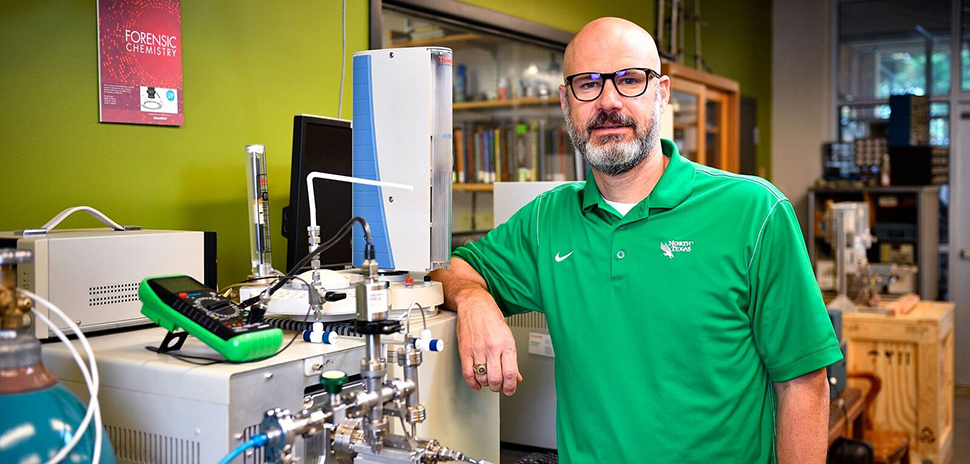UNT RESEARCHERS LEGALLY MAKE METH, OTHER DRUGS TO TEST NEW DEVICE
![]() You might call this research “Breaking Good.”
You might call this research “Breaking Good.”
According to a report by Dallas Morning News writer Stacy Fernandez, a University of North Texas professor and his graduate students have been making meth, PCP, and fentanyl in a lab for nine years — and, it’s all perfectly legal.
The federal government signed off on the research that has used the drugs to test a device under development — a breath analyzer that can idenfify methamphetamine, marijuana, cocaine, and other drugs in a person’s system.
“Using a mini mass spectrometer and special filters, my device can detect and identify chemical molecules in a gas.”
Guido Verbeck
Fernandez reported that the device was created by Guido Verbeck with the help of grad student Tom Kiselak.
Frisco-based InspectIR has been working with the researchers on the device, which is not yet ready for market. It sees medical and law enforcement uses for the device.
“Using a mini mass spectrometer and special filters, my device can detect and identify chemical molecules in a gas,” Verbeck said in a UNT release. “That means it can literally smell and identify substances on your breath.”
UTA PROF LEADS PANEL ADVISING ON PREVENTING PAIN

Robert Gatchel
Acute and chronic pain affects roughly 100 million Americans, and a professor at the University of Texas at Arlington led a federal advisory panel that has published recommendations on how to prevent it.
The advisory panel was led by Robert Gatchel, a distinguished professor of psychology at UTA. The group’s receommendations went to the Federal Research Pain Strategy, an interagency committee that oversees the federal government’s long-term strategic plan to support pain research.
“Our main conclusion is that better public education to heighten awareness about pain and its health consequences, and to teach individuals to manage their own pain, would make the greatest short-term impact,” Gatchel said.
He said finding new ways to educate the public about pain would be helpful.
“We really need to explore the use of technology, social media, and social-marketing techniques to address misconceptions about pain and the factors that exacerbate its societal impact,” he said.
Find out more about his work here.

[Photo via UT Southwestern Video]
UTSW AMONG FIRST TO USE NEW TIME-SAVING BLOOD TEST TO DIAGNOSE HEART ATTACKS
Time is an important component in treating heart attacks, and clinicians at UT Southwestern Medical Center in Dallas are among the first in the nation to use a new high-sensitivity blood test that cuts the time to diagnose a heart attack by more than half.
The researchers’ work recently was published in the American Heart Association’s journal Circulation.
“What we did in our study was compare our previous standard of care blood test to this new high-sensitivity blood test and with the old blood test it took eight to 10 hours,” said Sandeep Das, associate professor of internal medicine at UT Southwestern. “With the newer high-sensitivity test, we were able to make the diagnosis in one hour in about half the patients and in three hours in most of the rest, so it allows us to get our answer much, much faster.”
You can watch a video about the blood test here.
#DallasDiscovers: Follow our roundup of Dallas-Fort Worth R&D news on Twitter at @DallasInnovates.
READ NEXT
Discovery: Caching In to Speed up Data Access; Prof Studies Cochlear Implants & Literacy
![]()


































































